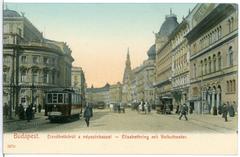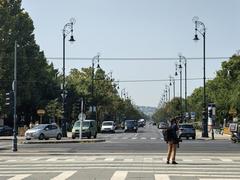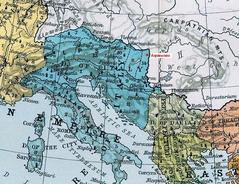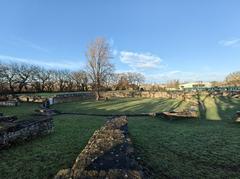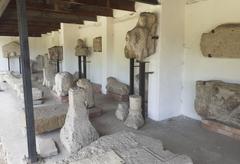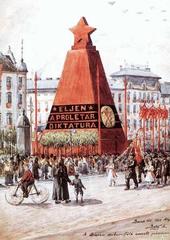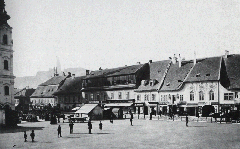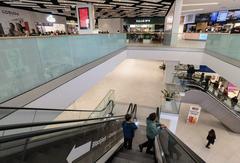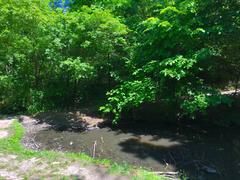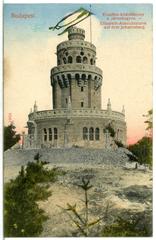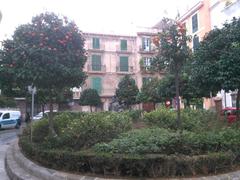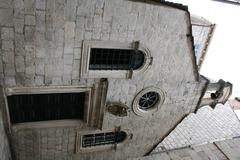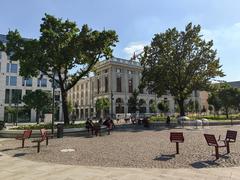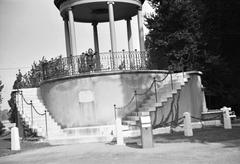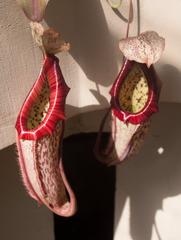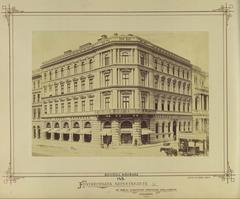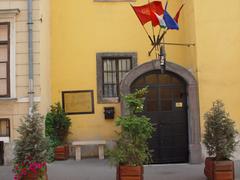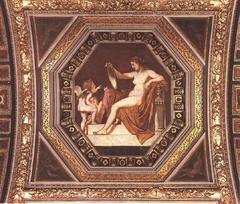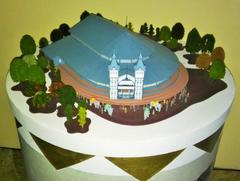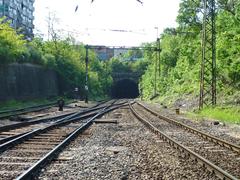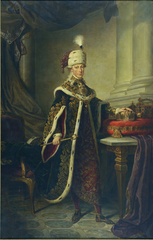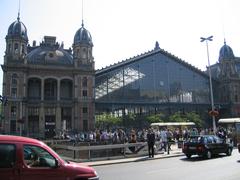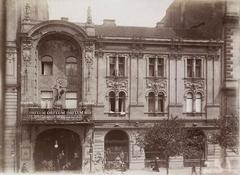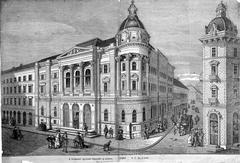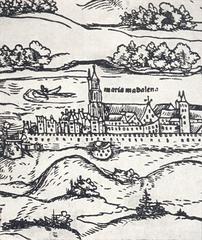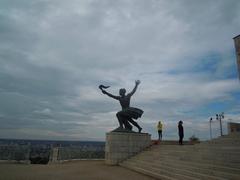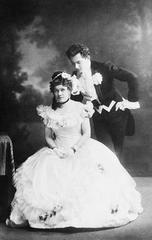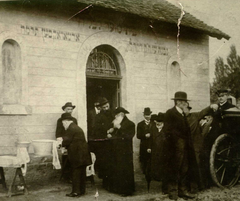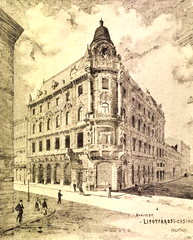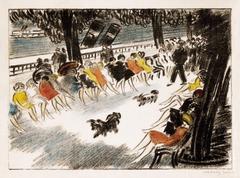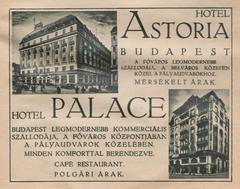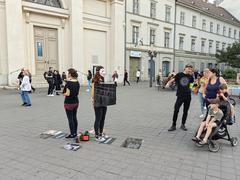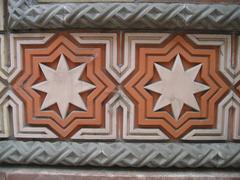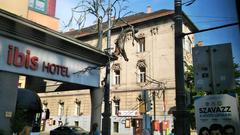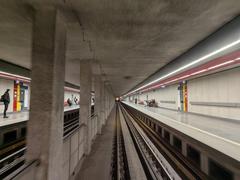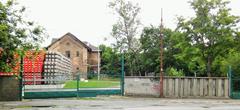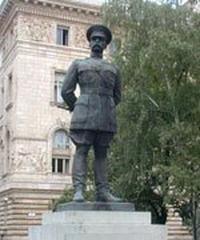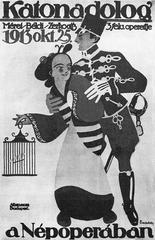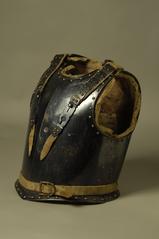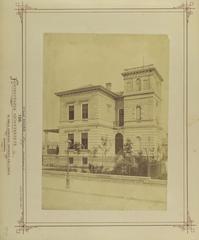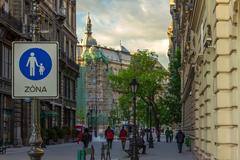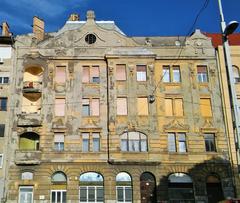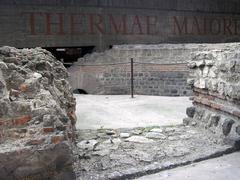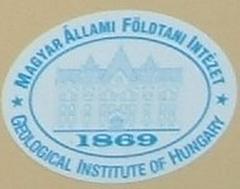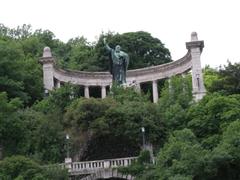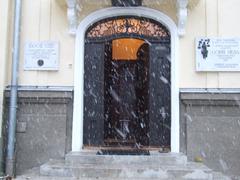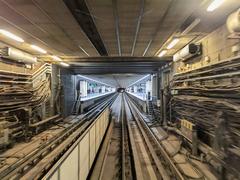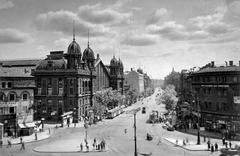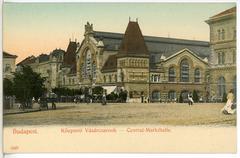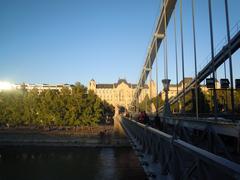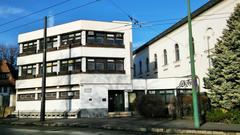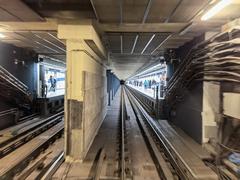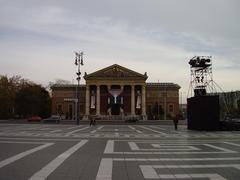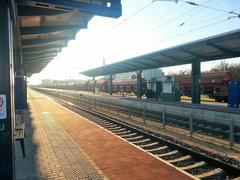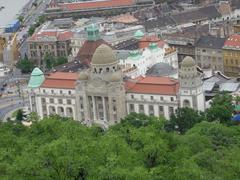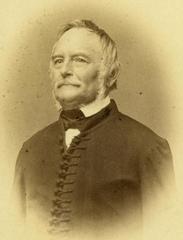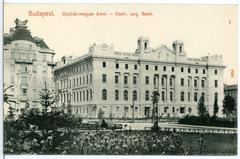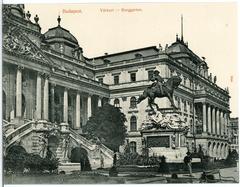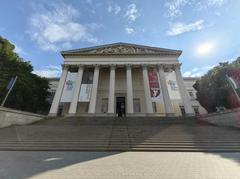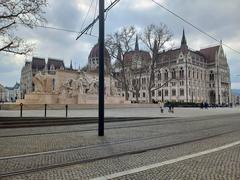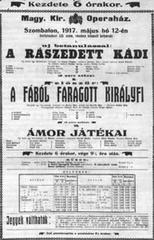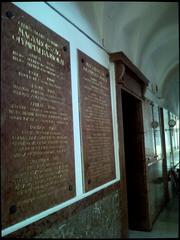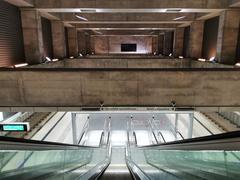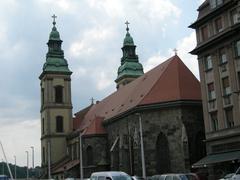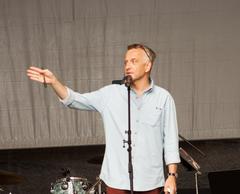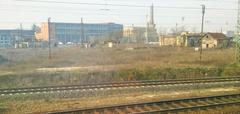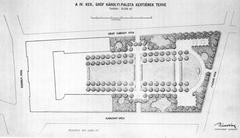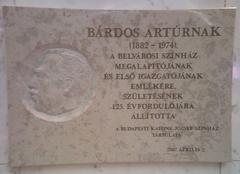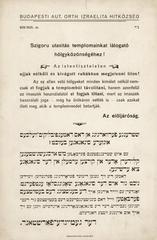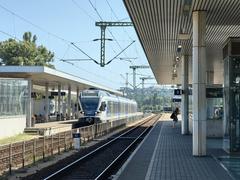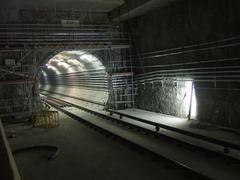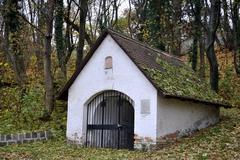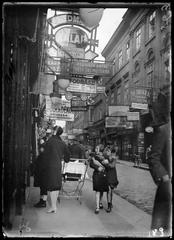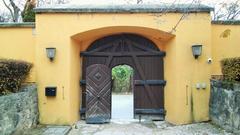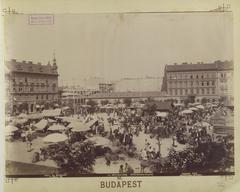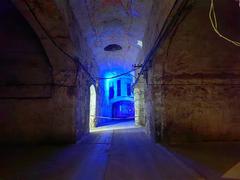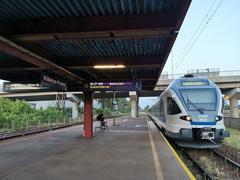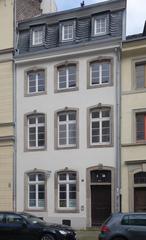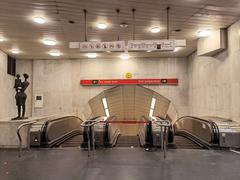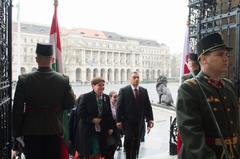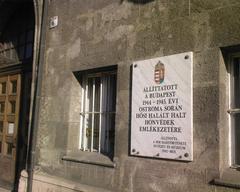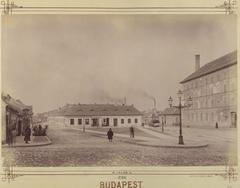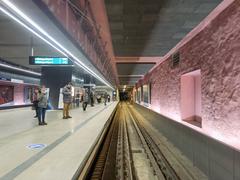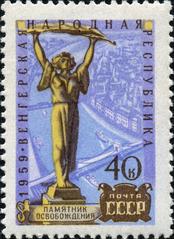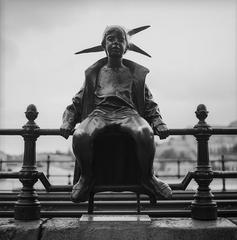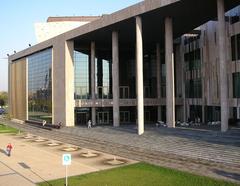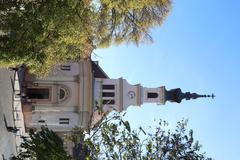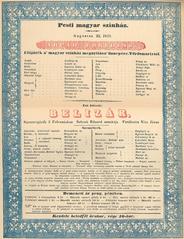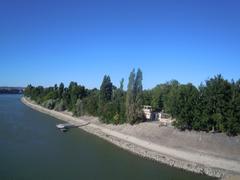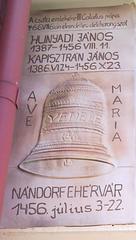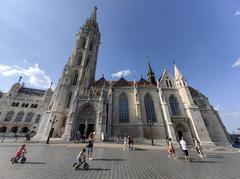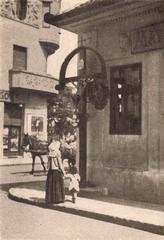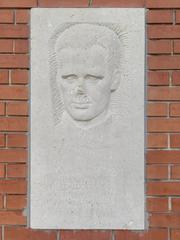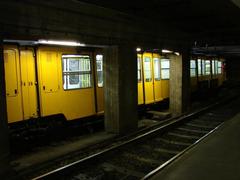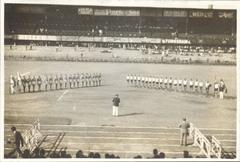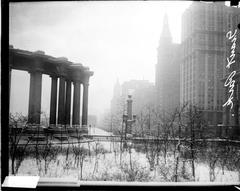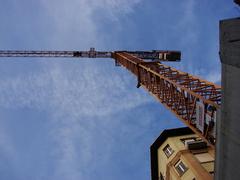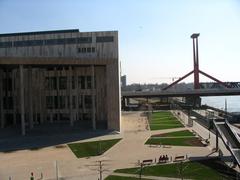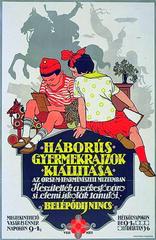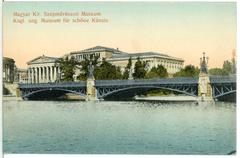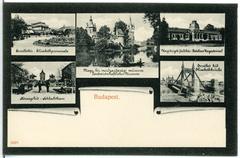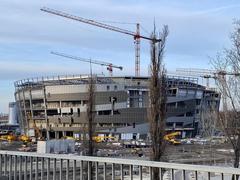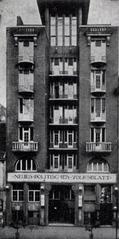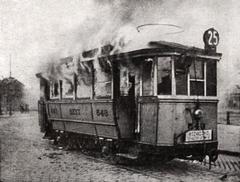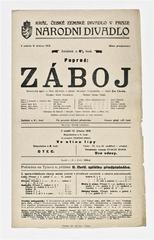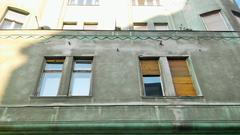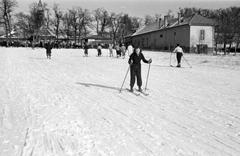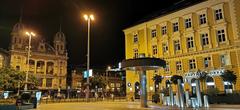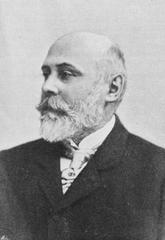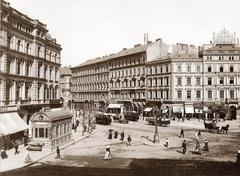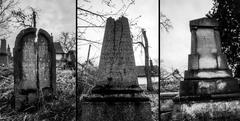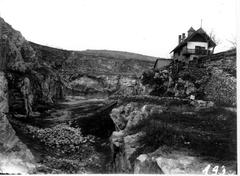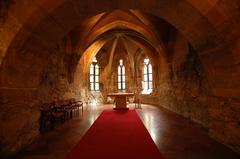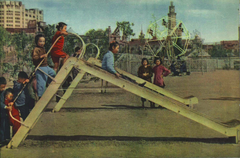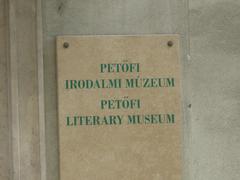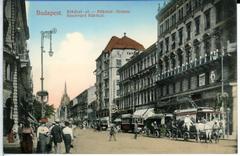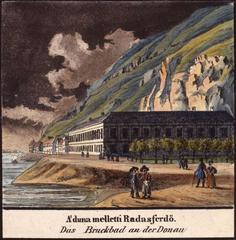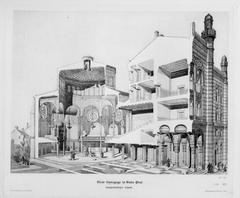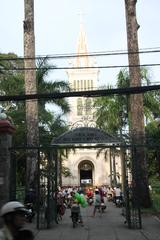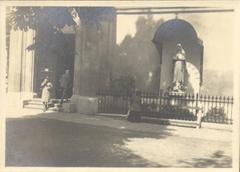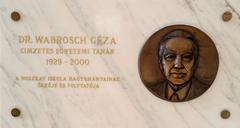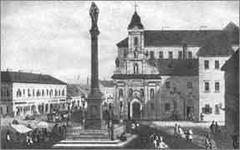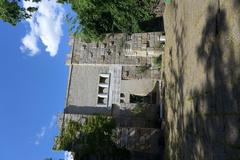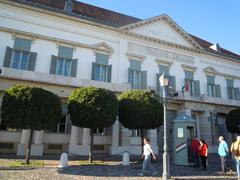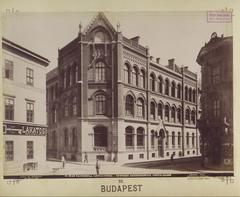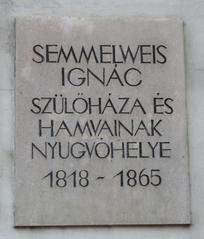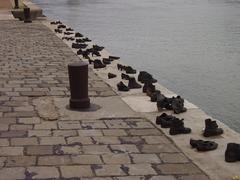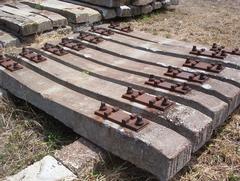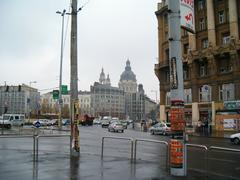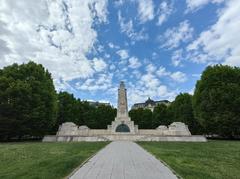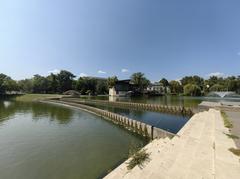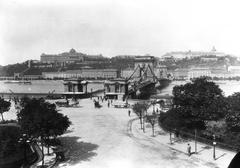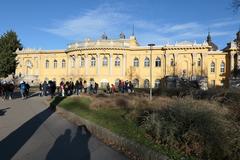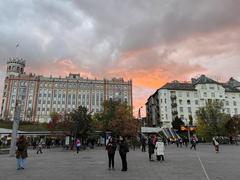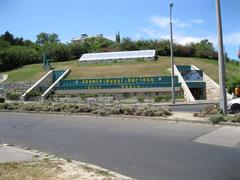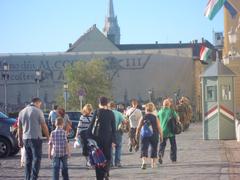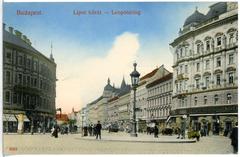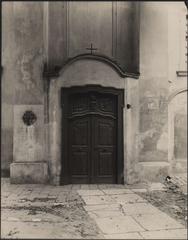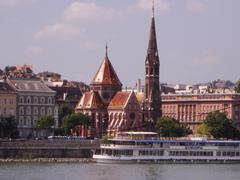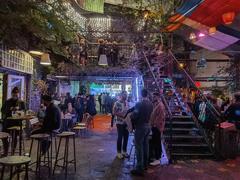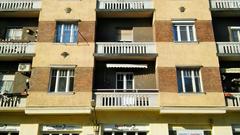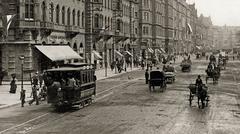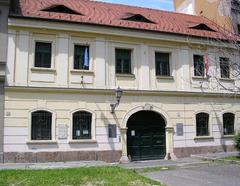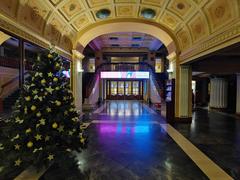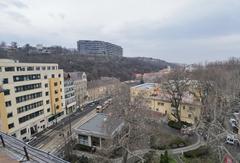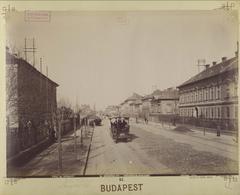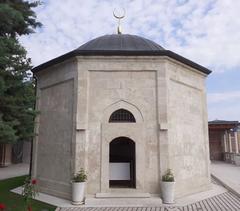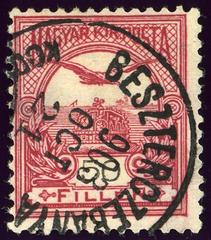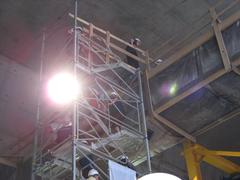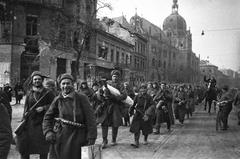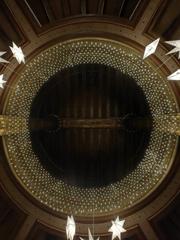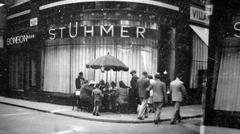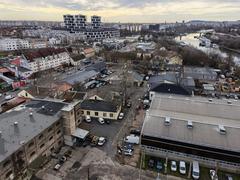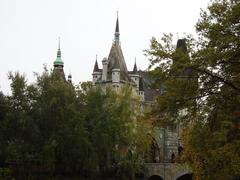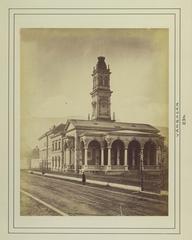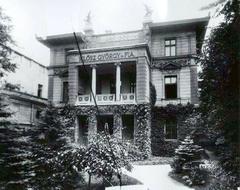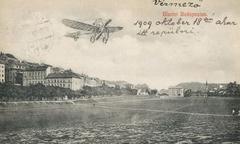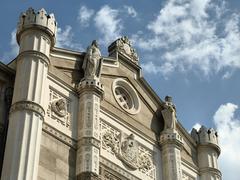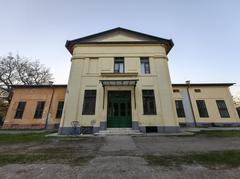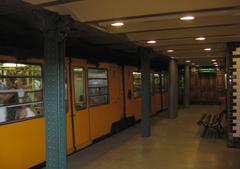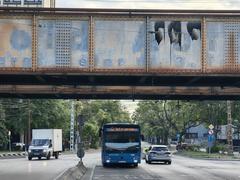Újpest Synagogue: Visiting Hours, Tickets, and Comprehensive Guide to Budapest’s Historic Jewish Landmark
Date: 14/06/2025
Introduction
The Újpest Synagogue, located in Budapest’s northern Újpest district, is a distinguished symbol of Jewish cultural and religious life in Hungary. Renowned for its striking blend of Romantic, Romanesque Revival, and Moorish Revival architecture, the synagogue is both an active place of worship and a poignant memorial to resilience in the face of adversity. Established in the late 19th or early 20th century, it stands today as a testament to the once-thriving Jewish community of Újpest and offers an invaluable window into Budapest’s broader historical narrative. This guide provides essential information on visiting hours, ticketing, guided tours, accessibility, and practical tips to help travelers and history enthusiasts make the most of their visit.
For the most current schedules and visitor resources, consult official channels and recognized tourism platforms (Jewish Heritage Europe; Visit Hungary; Wikipedia).
Table of Contents
- Historical Background
- Architectural Features
- Community Life and Holocaust Legacy
- Visiting Hours and Ticket Information
- Guided Tours and Accessibility
- Location, Directions, and Nearby Attractions
- Visitor Etiquette and Practical Tips
- Frequently Asked Questions (FAQs)
- Conclusion
- Sources and Further Reading
Historical Background
Origins and Construction
Újpest, originally a separate town before being incorporated into Budapest, experienced significant Jewish settlement in the 19th century. The burgeoning Neolog Jewish community—known for its modernizing spirit—commissioned the synagogue’s construction to serve as a religious, social, and educational hub. While the exact construction date and architect remain debated, some sources attribute its design to Ármin Hegedűs and Henrik Böhm, with major construction completed by the late 19th century (Jewish Heritage Europe; Visit Hungary).
The Jewish Community of Újpest
By the early 20th century, Újpest had developed a vibrant Jewish presence integral to local business, education, and culture. The synagogue became the focal point for religious services, community gatherings, and charitable activities, reflecting the Neolog emphasis on societal integration while preserving Jewish tradition (Visit Hungary).
Holocaust and Remembrance
The synagogue and its community suffered immense losses during the Holocaust. Many Újpest Jews were deported or killed, and the synagogue itself sustained damage. Post-war restoration efforts in the 1990s revitalized the building, preserving its historical features and adding a Holocaust memorial to honor those who perished (Wikipedia).
Architectural Features
Exterior
The Újpest Synagogue is an outstanding example of late 19th-century synagogue architecture, distinguished by its yellow and brown brickwork, Moorish-style onion domes, and a central rose window. The twin towers and decorative façade echo the grandeur of Budapest’s most famous synagogues, while maintaining a distinct local character (We Love Budapest).
Interior
The sanctuary accommodates roughly 1,000 worshippers and features high ceilings, slender supporting pillars, and a women’s gallery—typical of Neolog synagogues. The bimah is placed at the front, and the ornately designed Ark of the Covenant is adorned with traditional Jewish symbols. An organ, rarely found in Eastern European synagogues, reflects the community’s modernizing tendencies. Restored plasterwork, gold accents, and stained glass windows contribute to the building’s serene and uplifting atmosphere (Jewish Heritage Europe).
Ancillary Spaces
The complex includes a winter prayer room and community offices, maintaining the synagogue’s function as a center for religious and social life.
Memorials
A Holocaust memorial adjacent to the synagogue lists the names of Újpest’s Jewish victims, offering a place for reflection and remembrance (Wikipedia).
Community Life and Holocaust Legacy
Historically, the synagogue has served as more than just a place of worship. It was central to the Jewish community’s educational, social, and charitable endeavors. Despite the devastation of World War II, the synagogue remains a vibrant site for religious observance, cultural events, and commemorations, embodying both resilience and remembrance (History Tools).
Visiting Hours and Ticket Information
- Opening Hours: Typically Tuesday to Sunday, 10:00 AM to 5:00 PM. Closed Mondays and during Jewish holidays. Hours may occasionally change due to community events or religious observances.
- Admission: Entry is often free or donation-based; guided tours may require a fee (generally 1000–1500 HUF for adults, with discounts for students, seniors, and groups).
- Booking: Guided tours and group visits should be arranged in advance, especially during peak tourist seasons. Tickets are usually available onsite; some tours may offer online booking.
Check current schedules and ticket details on the official Újpest Synagogue website or via Budapest’s tourism portals.
Guided Tours and Accessibility
- Guided Tours: Highly recommended for context and deeper understanding. Tours are typically offered in Hungarian and English, with other languages available by prior arrangement.
- Accessibility: The main entrance is at street level with ramps for wheelchair users, though some areas (such as the upper gallery) may only be accessible by stairs. Contact the synagogue in advance for specific needs.
- Visitor Facilities: Restrooms are available, but there is no café or gift shop on-site. Local eateries and shops can be found in the surrounding neighborhood.
Location, Directions, and Nearby Attractions
- Address: 8 Berzeviczy Gergely Street, Újpest district, Budapest.
- Getting There: Take Metro Line 3 (M3, blue line) to Újpest-Központ station, then walk or take a short tram ride to the synagogue. Public transportation is recommended due to limited parking (Budapest public transport tips).
- Nearby Sites:
- Újpest Town Hall
- Városkapu Park
- Dohány Street Synagogue and Jewish Quarter (central Budapest)
- Local markets, cafés, and parks in Újpest
Visitor Etiquette and Practical Tips
- Dress Code: Modest attire required; men should cover their heads (kippahs provided), and women should cover shoulders and knees.
- Behavior: Maintain respectful silence during services and ceremonies. Refrain from phone use, eating, or drinking inside the sanctuary.
- Photography: Allowed in most areas, but always confirm with staff and avoid photographing during services or at memorials (PaulMarina: Synagogue Etiquette).
- Personal Items: Be prepared for security checks; large bags may not be permitted.
- Best Times to Visit: Spring and autumn offer pleasant weather and fewer crowds. Jewish holidays may affect access but also present opportunities to observe unique traditions (Budapest in June).
- Additional Tips: Carry valid ID, bring water in summer, and consider tipping guides for exceptional service (Tipping culture).
Frequently Asked Questions (FAQs)
Q: What are the Újpest Synagogue’s opening hours?
A: Tuesday to Sunday, 10:00 AM–5:00 PM; closed Mondays and Jewish holidays. Confirm ahead for any changes.
Q: How do I purchase tickets?
A: Usually available onsite. For tours, book in advance; some providers offer online booking.
Q: Is the synagogue wheelchair accessible?
A: The main entrance is accessible, but some areas may require stairs. Contact ahead for assistance.
Q: Are guided tours available?
A: Yes, in Hungarian, English, and sometimes other languages. Booking ahead is recommended.
Q: Can I take photos inside?
A: Generally permitted, except during services or in sensitive areas. Always ask staff first.
Conclusion
The Újpest Synagogue stands as a vibrant testament to Budapest’s Jewish history, architectural diversity, and enduring community spirit. Whether drawn by its ornamental façade, moving memorials, or rich cultural legacy, visitors will find a meaningful connection to Hungary’s past and present. For an enriching experience, plan ahead, respect local customs, and consider guided tours for deeper insight.
Explore more of Budapest’s Jewish heritage by combining your visit with other historic sites, and utilize resources like the Audiala app for audio guides and up-to-date information.
Sources and Further Reading
- Jewish Heritage Europe – Visiting the Újpest Synagogue in Budapest: Hours, Tickets & Architectural Highlights
- Visit Hungary – The History Around Us: 15 Synagogues of Pest You Must See
- History Tools – The Dohány Street Synagogue: A Beacon of Jewish Heritage in Budapest
- Wikipedia – Újpest Synagogue
- Budapest by Locals – Visit Budapest in June
- PaulMarina – Synagogue Etiquette
- Trip to Budapest – Practical Tips
